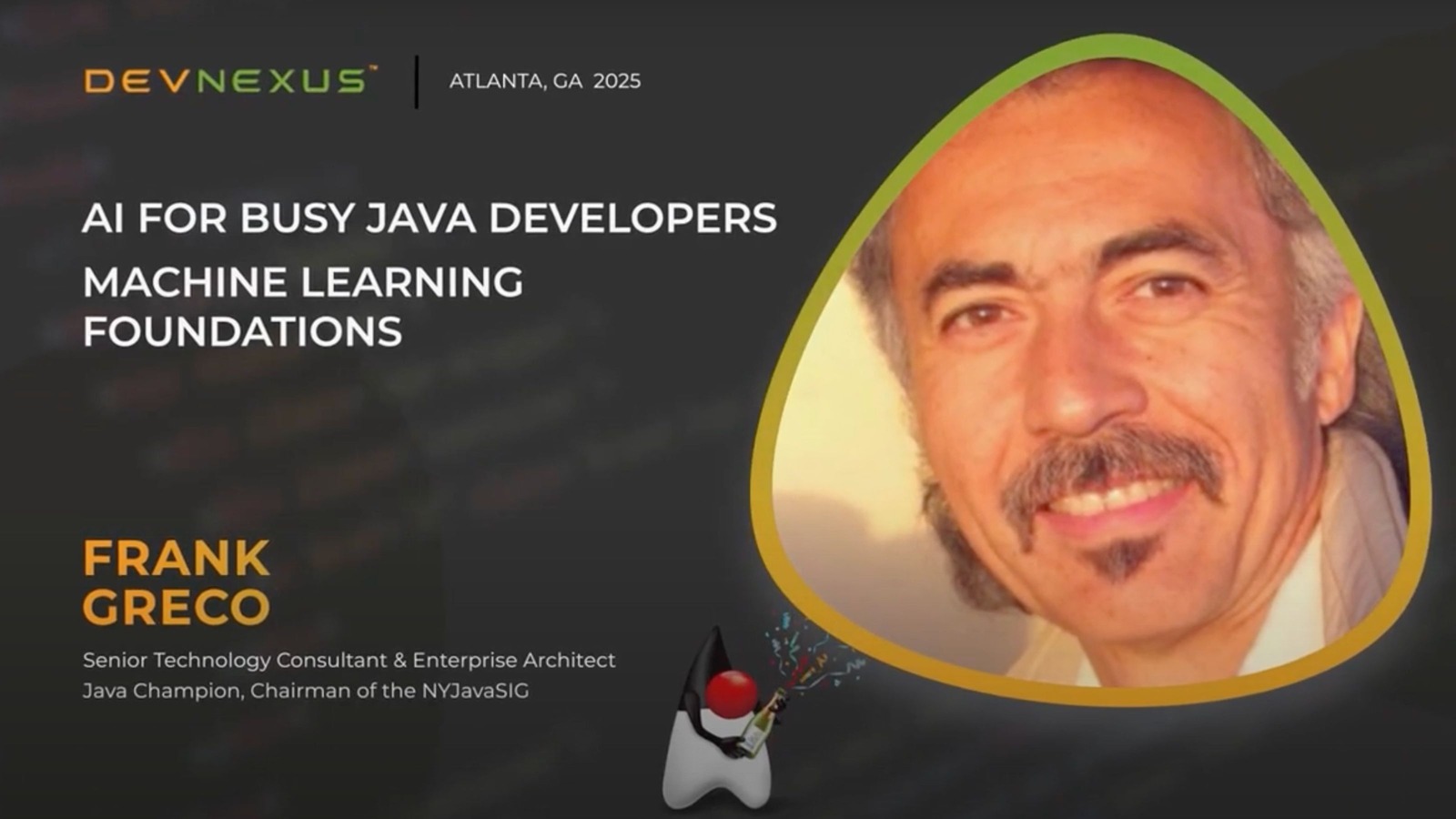AI for Busy Java Developers with Frank Greco

In his Devnexus presentation, AI for Busy Java Developers, Frank Greco provides a practical introduction to Generative AI (GenAI) tailored for the Java community. Greco emphasizes that AI is not simply a code generation tool. At its core, machine learning is about recognizing and predicting patterns, whether in music, finance, or software development. He reassures developers, “We have plenty of opportunity going forward. Our jobs are not in danger”, highlighting that the real potential lies in applying AI across the entire software development lifecycle—from gathering requirements and prototyping to documentation and maintenance. However, he cautions that developers must understand the principles and domain; “You have to understand what’s going on. You cannot just plug it in” to an IDE.
Greco delves into architectural and prompting strategies for building reliable, production-grade AI applications, primarily addressing the challenges of hallucinations (confabulation) and the non-deterministic nature of Large Language Models (LLMs) . He highlights Retrieval-Augmented Generation (RAG) as a critical solution. RAG integrates traditional IT systems, often vector databases of embeddings, to retrieve relevant, verifiable company-specific data and inject it into prompts. This contextual grounding reduces errors and increases trust in AI outputs. Greco also covers effective prompting techniques, such as Chain-of-Thought for breaking complex problems into sub-problems, and introduces LangChain4j, a Java abstraction layer enabling seamless switching between LLM providers (Google Gemini, Anthropic Claude, OpenAI) without rewriting REST API calls.
Finally, Greco emphasizes the strategic opportunities and necessary precautions for developers. While Python has led AI model creation, the industry is moving into a production-focused phase, where Java’s strengths in scalability and reliability shine. He presents a decision framework: low-risk, pattern-based tasks are ideal for AI, while high-risk applications, like financial or regulatory systems, demand extreme caution. He concludes with security considerations, particularly prompt injection, recommending architectures where multiple LLMs collaborate to validate and sanitize user input before execution. By combining AI’s pattern-recognition capabilities with Java’s production strengths, developers can unlock innovation across the software lifecycle while maintaining reliability, accuracy, and security.
🎥 Watch the full session here: AI for Busy Java Developers – Frank Greco
Want to see more talks like this in person? Join us next year at Devnexus 2026 for insights, demos, and discussions with the experts shaping the future of development. 🚀
devnexus.com



